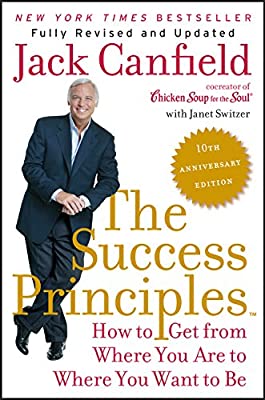I began reading this book in 2008 aboard multiple Charter and Hercules flights heading from Darwin into Tarin Kowt, Afghanistan; and I finished it during RSO&I (Reception, Staging, Onward Movement and Integration) in Kuwait and the early stages of Mentoring Reconstruction Task Force 1. It has stuck with me since then.
Jack Canfield has collected what he asserts to be 67 essential principles for attaining goals and creating a successful life. This book gets directly to the foundation of the Australian Army Leadership Program (AALP), ‘Lead Self’, and its fundamentals, but it goes beyond that and provides the core of what excellence looks like.
The book is divided into six sections: The Fundamentals of Success, Transform Yourself for Success, Build Your Success Team, Create Successful Relationships, Success and Money, and Success in the Digital Age.
Before Jocko Willink came along with Extreme Ownership, Canfield’s very first principle had it covered: ‘take 100% responsibility for your life’. The idea is that there is no entitlement to a great life, and you are the only person responsible for the quality of life you live. The book builds from the premise that once you understand that you control the outcomes in your life, you can undo failures, and create and re-create successes at will. Don’t wish for a better wind, learn to set a better sail; as the book puts it, “Event + Response = Outcome”.
From front to back, this is a workbook of sorts. It implores you to take the steps as you read in order to build an excellent, actionable plan or strategy by the end of the book. Principle 7 is “Unleash the Power of Goal Setting – It’s hard to hit a target you cannot see, it’s impossible to hit a target you do not have”. This chapter memorably unpacks the difference between a good idea and a goal or objective, and how to create goals that a) have the best chance of success and b) will stretch you.
Principle 8 gets straight at achieving those goals by breaking them down to achievable, action steps that can help you accomplish whatever goal you set. Fundamentals like making a list and planning your next day the night before are also covered; they seem simple but watch the work pile up when you stop doing them.
If you were to read and apply only the first 181 pages of this book, covering The Fundamentals of Success, you’d be enriched. But don’t! Keep reading. The very next idea is “Drop out of the ‘Aint it Awful’ club and surround yourself with successful people)”; the premise being that you become like the people you spend the most time with.
Parents of young children out there (my wife and I just welcomed our third) know this to be true and can see it in their children. The same applies to your work environment and social groups; find successful people and associations that reflect who you wish to be as a person or professional. Be selective, avoid toxic people, and surround yourself with successful people that you can be authentic with. Build each other up.
The book concludes by providing access and references to success tools, such as planning and strategy guides, and suggested further readings and resources. So instead of resting on your laurels having completed a book, you can keep the journey moving.
This book is 455 pages of gold. It takes wisdom from books such as How to Win Friends and Influence People, and sage advice from people such as W. Clement Stone and Jim Rohn, the mentor of famous leadership guru Tony Robbins. With illuminating candour, the author synthesises the wisdom, insights, understandings and inspiration from many sources. If you only read one personal development book this year, it should be this one.
About the Author: Isaac Williams is an Engineer officer currently working as S03 Leadership in the Centre for Australian Army Leadership. Find him on Twitter.

